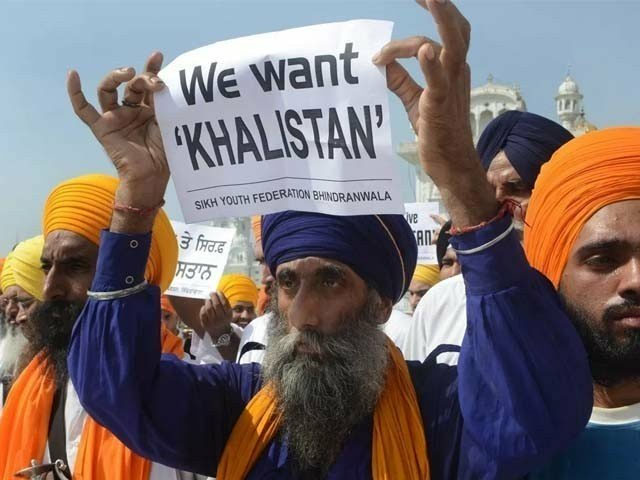Around 208,000 Sikhs took part in Khalistan Refer-endum held across four countries to demand the liberation of Indian Punjab from Indian occupation and the establishment of a sovereign Sikh state.
Starting in October last year, four referendums have so far been held in UK, Geneva, Italy and Canada in which the Sikh community actively par-ticipated in a huge number.
The latest exercise in this regard was held in Brampton, Canada on September 18, in which ap-proximately 110,000 Sikhs – 20 percent of the adult Sikh population voted for a sovereign state.
The first Khalistan referendum was held on Oc-tober 31, 2021, in the UK, in which 30,000 Sikhs participated. Over 6,000 people voted for a sovereign Sikh state in Geneva on December 10, last year.
A similar exercise was held in Italy with the participation of 62,000 Sikhs and around 110,000 in Canada.
The referendum in Canada was organized by Sikh for Justice (SFJ) under the leadership of Sikh leader Gurpatwant Singh Pannu in a peaceful and democratic way.
During interaction with media outlets, Gurpat-want Singh showed a proposed Khalistan Map with Shimla as its capital.
The huge turnout for the Sikh Referendum de-picts that the issue of ‘Sikh Independence Move-ment’ is becoming a mainstream movement.
During the referendum, Sikh community raised anti-India and pro-Khalistan slogans and more than 2,000 cars took part in the pro-Khalistan rally.
The referendum campaign by SFJ has raised awareness in a global community with regard to atrocities committed against Sikhs by India. This will also further pressurize India to hold an official referendum.
Under the UN Article which gives people the right to self-determination, holding a referendum for independence in a peaceful and democratic way is the right of everyone.
Using its typical tactics, India issued multiple requests to the Canadian government to stop the Khalistan Referendum.
The Canadian government refused to stop the SFJ from holding a referendum and categorically informed the Indian government that it was held in a peaceful and democratic way within the legal pa-rameters of Canadian Law.
The Indian Ministry of External Affairs strongly objected to the referendum and termed it as a ‘farcical exercise held and supported by politically motivated extremist elements.’
Even the Indian leading newspapers and televi-sion channels did not cover the peaceful demonstra-tion of Sikh community and instead negatively cov-ered the entire event despite professing to be a de-mocratic country and having freedom of expression.
The timeline of various Khalistan Referendums and the number of Sikhs who voted in favor of In-dependent Khalistan reflect that the demand of Sikhs for an independent state in India is gradually being accepted globally.
According to analysts, Sikh Independence Movement is gaining traction within the Sikh com-munity.—APP









